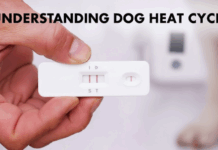Last Updated on February 29, 2024 by Dogs Vets
Do Rescue Dogs Remember Their Past Lives? Experts Tips (With FAQs)
The soulful gaze of a rescued dog can melt even the stoniest heart. But staring into those expressive eyes, a question often arises: do they remember their past lives?
This question, as heartwarming as it is, is shrouded in the fascinating and complex world of canine cognition.
While we may never fully know what goes on behind those floppy ears, recent research and anecdotal evidence paint a picture of emotional memory, learned behaviors, and even potential episodic memory playing a role in how rescue dogs navigate their new lives.
Can Dogs Remember Events and Experiences?
Dogs, like humans, possess various types of memory. Short-term memory allows them to recall things for a brief time, like where you hid their favorite treat. Long-term memory, however, holds information for a longer duration and can be further divided into:
- Declarative memory: This type of memory stores facts and events, like remembering specific commands or routines.
- Non-declarative memory: This encompasses implicit memories, including those related to emotions, skills, and habits.
Studies suggest that dogs can retain memories for extended periods, particularly those linked to strong emotions.
For example, a dog who experienced neglect or abuse might exhibit fear or anxiety in situations reminiscent of their past trauma. Conversely, positive experiences can leave lasting positive impressions.
The Power of Emotional Memory
Imagine a dog who was once abandoned at a busy shelter. The cacophony of sounds, unfamiliar smells, and feeling alone could be a deeply unsettling experience.
When adopted into a loving home, the dog might initially show signs of anxiety or fear when left alone. This could be their way of associating being alone with the negative emotions they experienced at the shelter.
This emotional memory can manifest in various ways, influencing a dog’s behavior and interactions with the world around them. It’s crucial to remember that these memories can be both positive and negative, highlighting the importance of creating a safe and loving environment for your adopted furry friend.
Learned Behaviors and Recognition
While episodic memory, the ability to recall specific events in detail, is still debated in the scientific community, there’s evidence suggesting that dogs can recognize familiar people, places, and even objects from their past.
Some rescue dogs might exhibit excitement upon seeing a similar-looking dog walker or a specific type of leash they used to associate with walks in their previous life. These instances showcase how learned behaviors and associations can persist even after significant life changes.
Beyond the Science: Anecdotal Evidence
Science offers valuable insights, but sometimes, the most compelling evidence comes from personal experiences. Many rescue dog owners have shared anecdotes of their dogs seemingly recognizing people or places from their past.
A common story involves a dog who displays unusual behavior when returning to their previous home or neighborhood.
While we can’t definitively say if this is due to memory or simply new, unfamiliar surroundings, these stories highlight the emotional connection that dogs can form with their past experiences.
Embracing the Mystery: Building a Bond with Your Rescue Dog
Whether or not rescue dogs remember their past lives in the same way humans do is still a mystery waiting to be unraveled.
However, focusing on building a positive and loving bond with your adopted canine companion is far more important than dwelling on what they might or might not remember.
By providing a stable and enriching environment filled with love, patience, and understanding, you can help your rescue dog overcome any past challenges and thrive in their new forever home.
(FAQs):
1. Should I talk to my rescue dog about their past?
While it’s important to be sensitive to your dog’s potential past experiences, there’s no need to explicitly talk about it. Focus on building a positive and trusting relationship in the present, using positive reinforcement and gentle communication.
2. How can I help my rescue dog adjust to their new home?
Provide a safe and predictable routine, create designated areas for sleeping and eating, and offer plenty of opportunities for exercise and mental stimulation. Patience and understanding are key!
3. What if my rescue dog exhibits behavioral issues?
Consult a qualified animal behaviorist or veterinarian for guidance. They can help identify triggers, develop a personalized training plan, and ensure any underlying health concerns are addressed.
4. How can I learn more about my rescue dog’s past?
If you adopted your dog from a shelter or rescue organization, they might have some information about their background. However, details might be limited. Regardless, the focus should be on creating a positive future together.
Fact Check
We strive to provide the latest valuable information for pet lovers with accuracy and fairness. If you would like to add to this post or advertise with us, don’t hesitate to reach us. If you see something that doesn’t look right, contact us!























